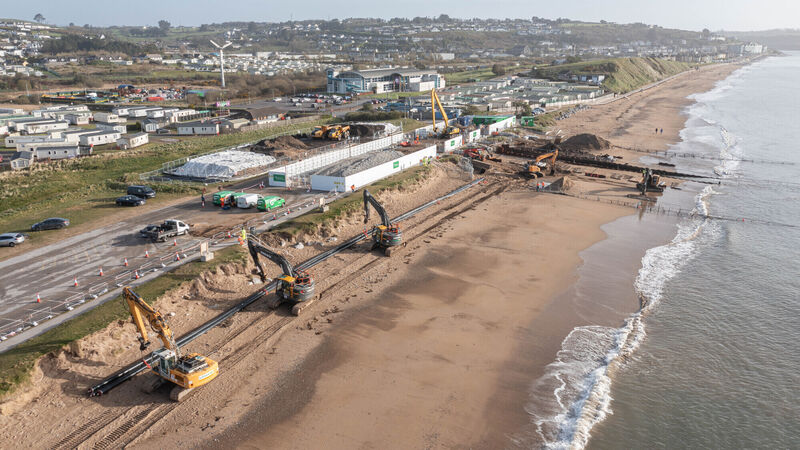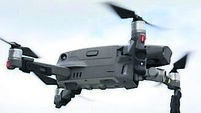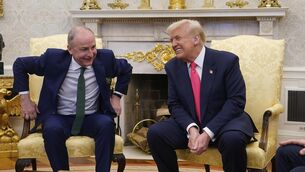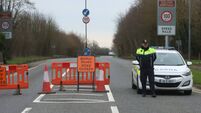Ireland to join intel-sharing alliance amid fears over threat to subsea cables

The island of Ireland has three subsea electricity interconnectors, all linking to Britain. This site in Youghal, Co Cork, is about to become the Irish landfall of the fourth, the Celtic Interconnector linking our electricity grid to the French network. Picture: Howard Crowdy
Ireland will on Monday join a powerful alliance of nations that shares intelligence and information on potential threats in EU sea waters.
Tánaiste Simon Harris has approved plans to join the Common Information Sharing Environment (Cise) in order to boost Ireland’s maritime surveillance.













